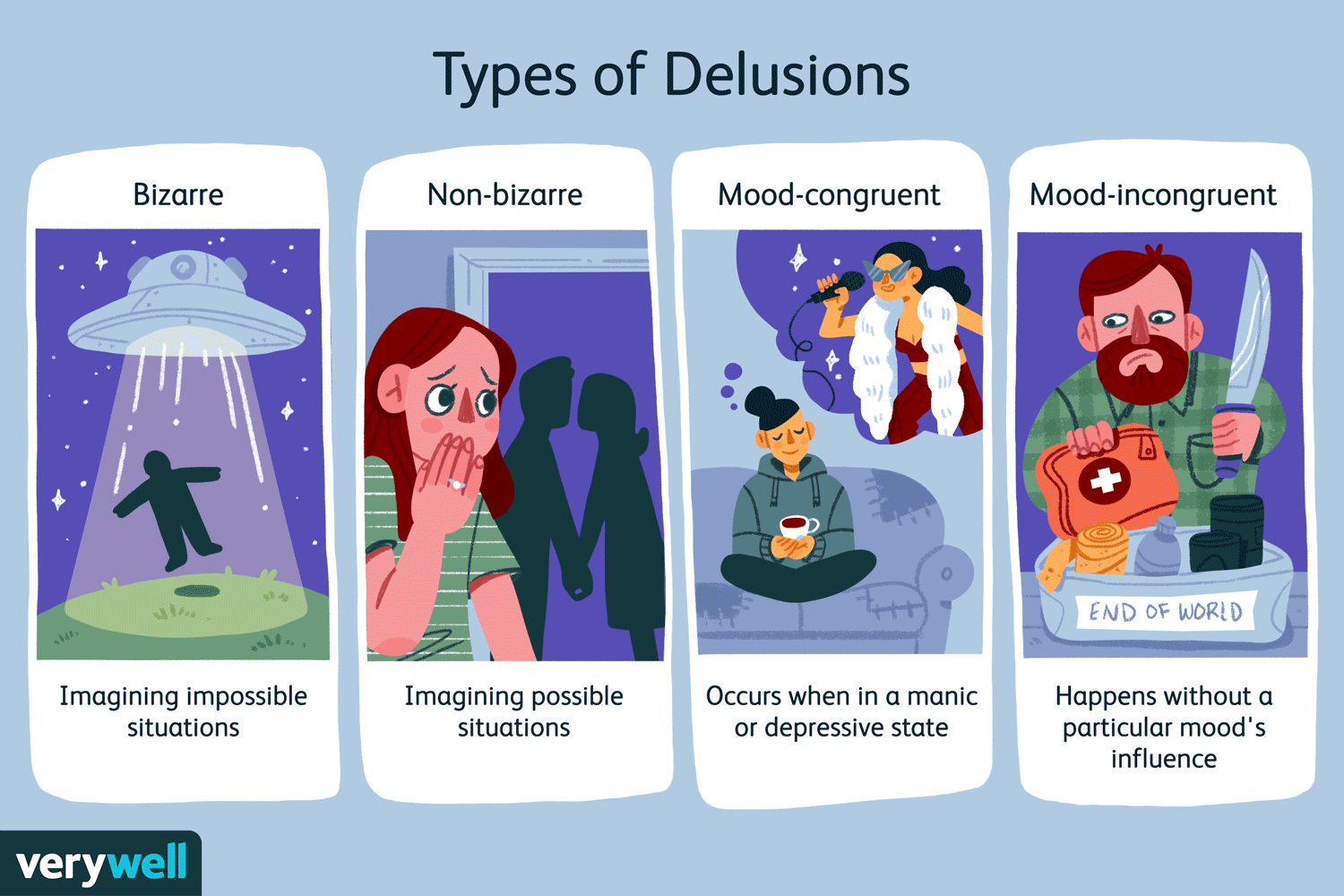Delusional disorder is a mental health condition characterized by the presence of one or more delusions that persist for at least one month.1 Delusions are fixed false beliefs that are not based on reality.
Types of Delusions
There are several types of delusions, including:
- Persecutory Delusions: The belief that one is being persecuted, spied on, or plotted against.
- Grandiose Delusions: The belief that one has special powers, abilities, or importance.
- Jealous Delusions: The belief that one’s partner is unfaithful.
- Somatic Delusions: False beliefs about one’s physical health or appearance.
- Referential Delusions: The belief that certain gestures, comments, or environmental cues are directed at oneself.
Symptoms of Delusional Disorder
People with delusional disorder may experience:
- Fixed False Beliefs: Persistent and unshakable beliefs that are not based on reality.
- Lack of Insight: Inability to recognize the irrationality of their beliefs.
- Normal Behavior: Aside from the delusional beliefs, their behavior may appear relatively normal.
Causes of Delusional Disorder
The exact causes of delusional disorder are not fully understood. However, several factors may contribute to its development, including:
- Genetic Factors: A family history of mental illness may increase the risk.
- Neurobiological Factors: Brain abnormalities may play a role in the development of delusional disorder.
- Environmental Factors: Stressful life events or drug use can trigger psychotic symptoms.
Treatment of Delusional Disorder
Treatment for delusional disorder typically involves a combination of medication and therapy:
- Medication: Antipsychotic medications can help manage delusions and other symptoms.
- Psychotherapy: Cognitive-behavioral therapy (CBT) can help individuals challenge delusional beliefs and develop coping strategies.
With appropriate treatment, many people with delusional disorder can manage their symptoms and improve their quality of life. However, it’s important to seek professional help if you or someone you know is experiencing symptoms of delusional disorder.



